Management of the Village Waste, Theme of Community Service of Cultural Studies Doctoral Study Program in , FIB Unud in Kelating Village 2024
Cultural Studies Doctoral Study Program, Faculty of Humanities, Unud carried out Community Service activities in Kelating Village, Kerambitan District, Tabanan, Saturday, March 16 2024.
The theme of the service is managing waste , as the meaning of Gubernatorial Regulation 47/2019 concerning source-based waste management. This theme was chosen because nowadays waste is a problem everywhere.
The event was led by Coordinator of Prof. Dr. I Nyoman Darma Putra, M. Litt. It was attended by around 55 people, consisting of students and community members, including local youth organization administrators. Hosei University Tokyo Professor, Prof. Toru Sakane also attended the event as the academic guest from the Cultural Studies Doctoral Study Program FIB Unud.
The event was filled with dialogue about local wisdom in managing waste entering the village. The dialogue guided by Dr. I Wayan Suardiana, M. Hum. It featured resource person Anak Agung Gede Agung Dalem, a PhD student in Cultural Studies who is also the Head of Cleanliness and B3 Waste Management at the Badung Regency Ministry of Environment and Forestry Service.
At that time, the Cultural Studies Study Program Department handed over a number of rubbish bins to the community which were received by Kelating Village Head Dewa Made Maharjana and Kelating Village Headmaster I Made Swarga.
In his speech, Kelating Traditional Village Head, Dewa Made Maharjana said that his residents had saved Bali in dealing with the waste emergency at the end of last year. At that time, the rubbish dump in Suwung, Denpasar, caught fire. Garbage trucks are not allowed to dump rubbish into Suwung so rubbish piles up everywhere around Badung and Denpasar.
“We invite you to throw rubbish in our village. "The rubbish is piled up in the excavation area," said Dewa Made Maharjana.
He hopes that in the future the government will provide attention and assistance to Kelating Village, the village is developing the tourist area as there are a lot of hotels or villas development on Kelating beach, in the future Kelanting Village will maintain cleanliness and manage waste well.
Village Head Kelating said that it is very important to build community awareness and skills in managing waste.
“So far, most of us have been moving rubbish. "What is needed is awareness and skills in managing waste," said Kelating Village Supervisor I Made Swarga.
Lecturer in the Cultural Studies Study Program and Chair of the FIB Unud Senate, Prof. Dr. Nyoman Weda Kusuma, in his speech to the Study Program, was grateful for the welcome from the residents of Kelating Village.
"We are amazed at the great service of Kelating residents to help Bali in the waste emergency, so the community can learn from Kelating because waste is all our business," he said.
This service event was filled with dialogue on waste management at the household level. At that time, resource person Anak Agung Gede Agung Dalem provided an explanation and example of choosing waste in the household.
According to Agung Dalem, increasingly, individuals are 'producing' old quinine waste, from half a kilogram per day to close to 1 kg/day.
People's habit of buying food via go-food, for example, comes not only with food but also with layered packaging which then becomes waste.
"If each individual or household wants to manage their own waste, then the amount of waste that must be transported to the landfill will be very small," said Agung Dalem enthusiastically, giving an example of waste separation.
Leftover food can be collected and sold to farmers, because leftover food can be used as animal feed. Agung Dalem gave an example of the waste sorting program in Tanjung Benoa Village.
The dialogue was productive with questions and answers and enlightening examples of waste sorting. It was revealed and what was amazing was that Kelating Village already had regulations (perarem) in the village awig-awig regarding waste management.
Local people are also starting to get used to collecting plastic waste in exchange for rice (dp).
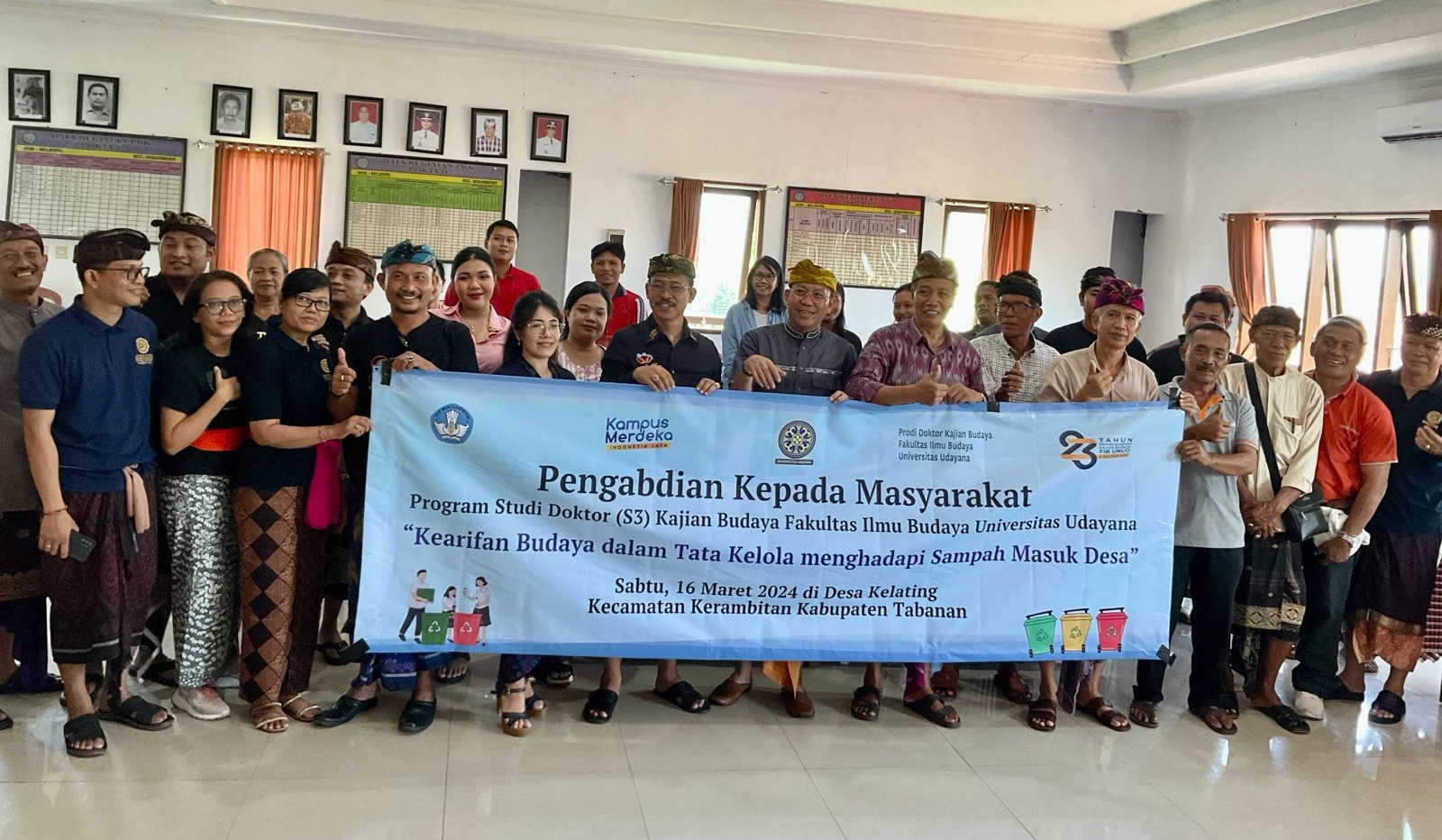
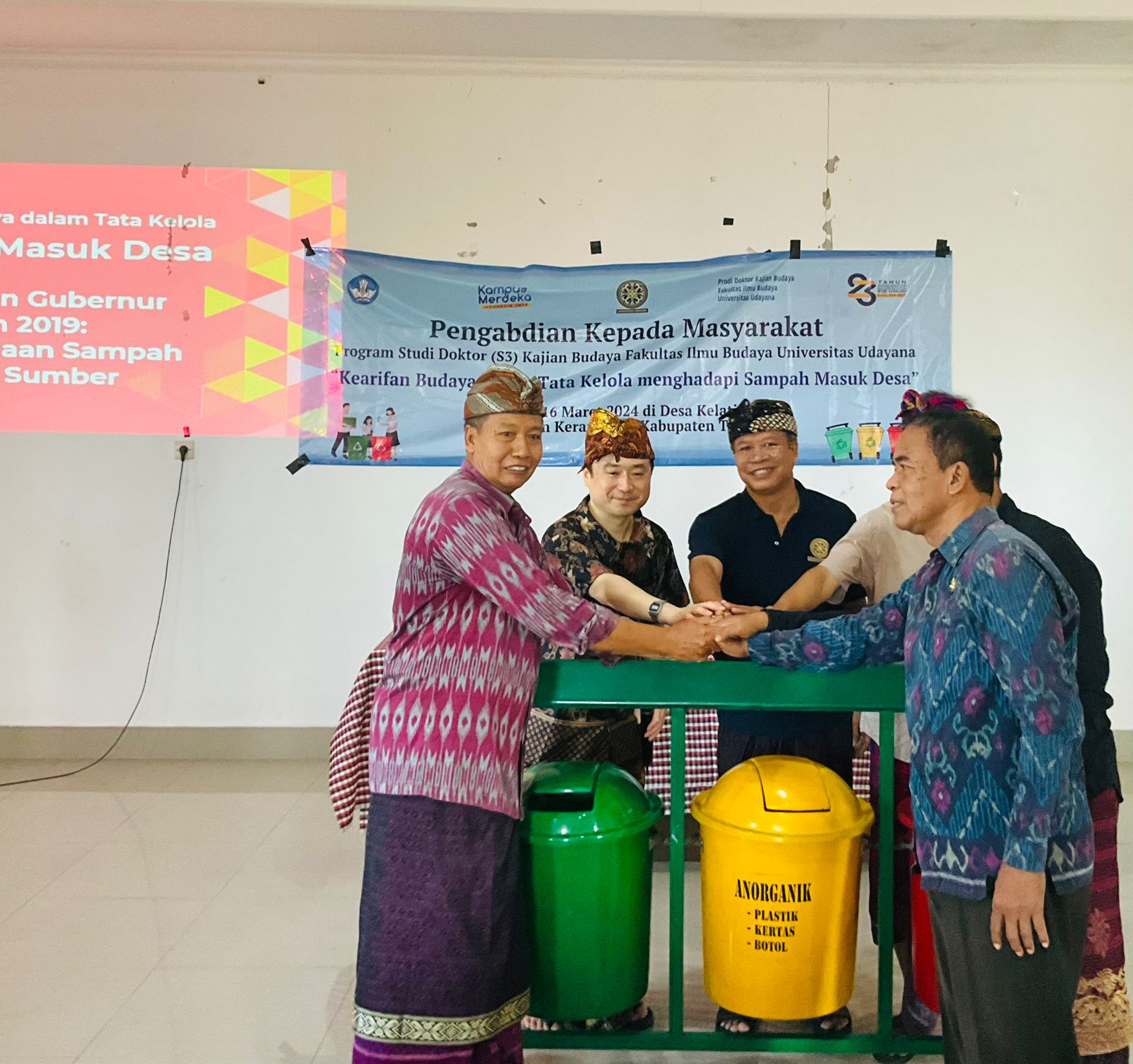


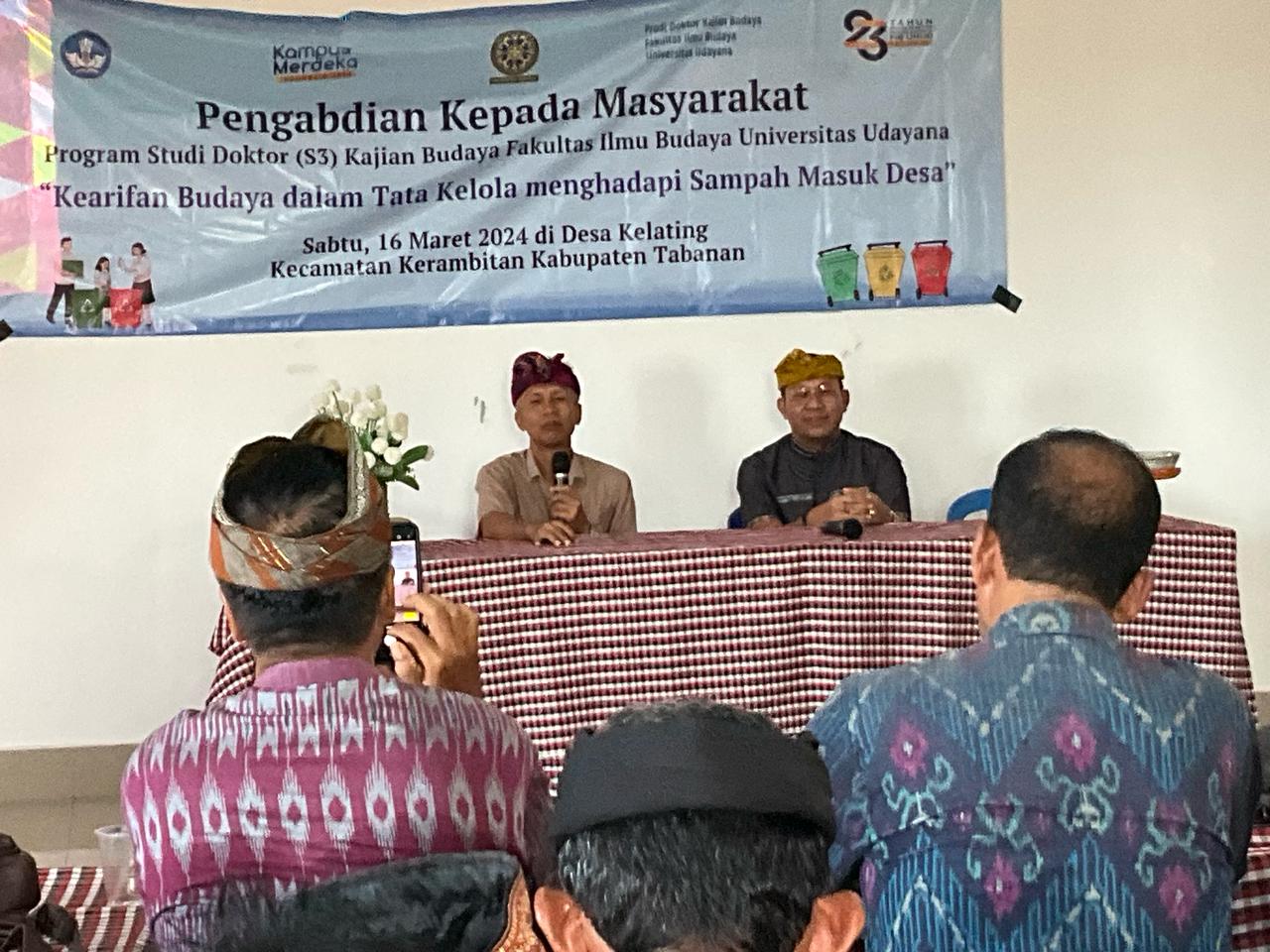
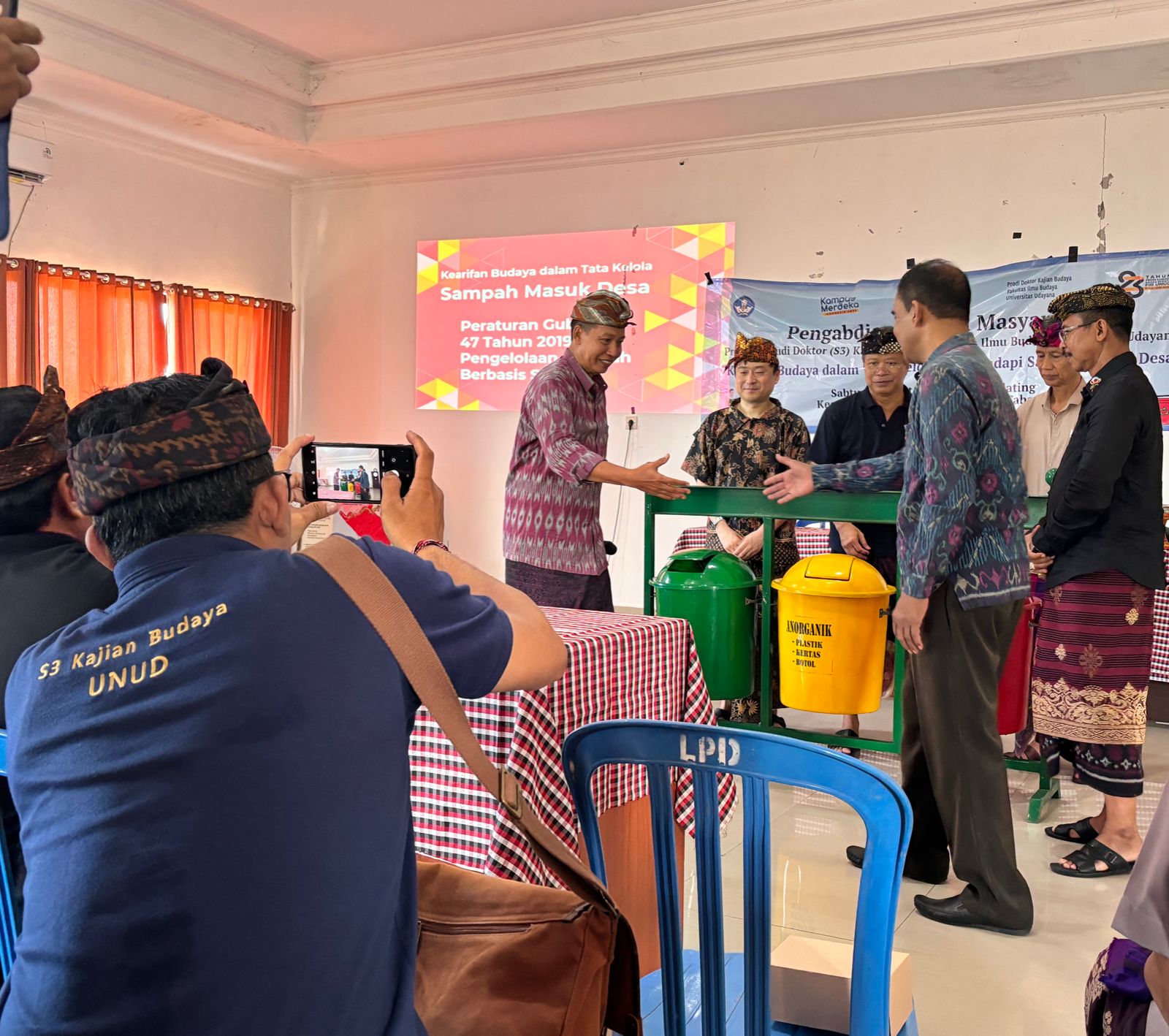
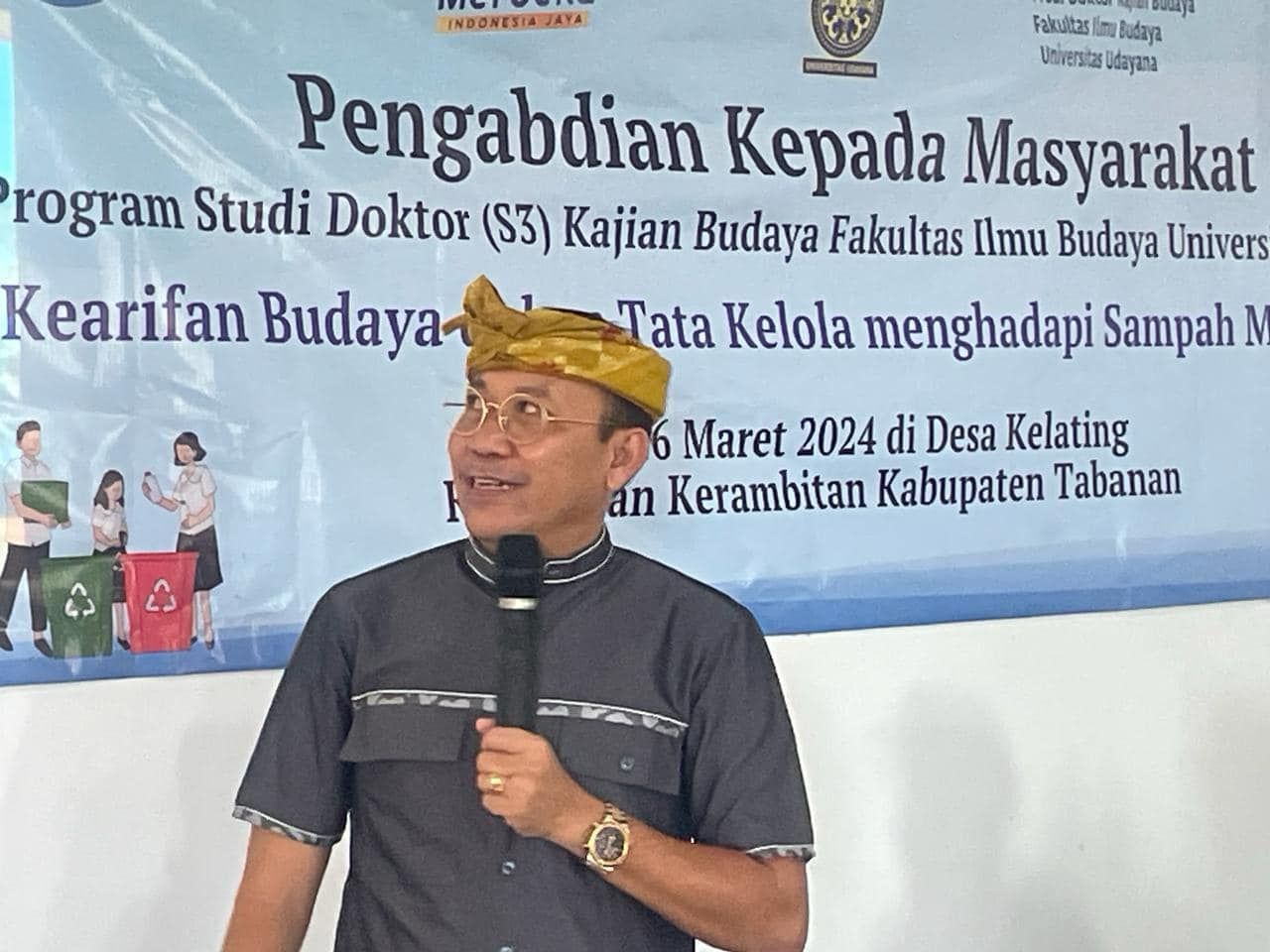
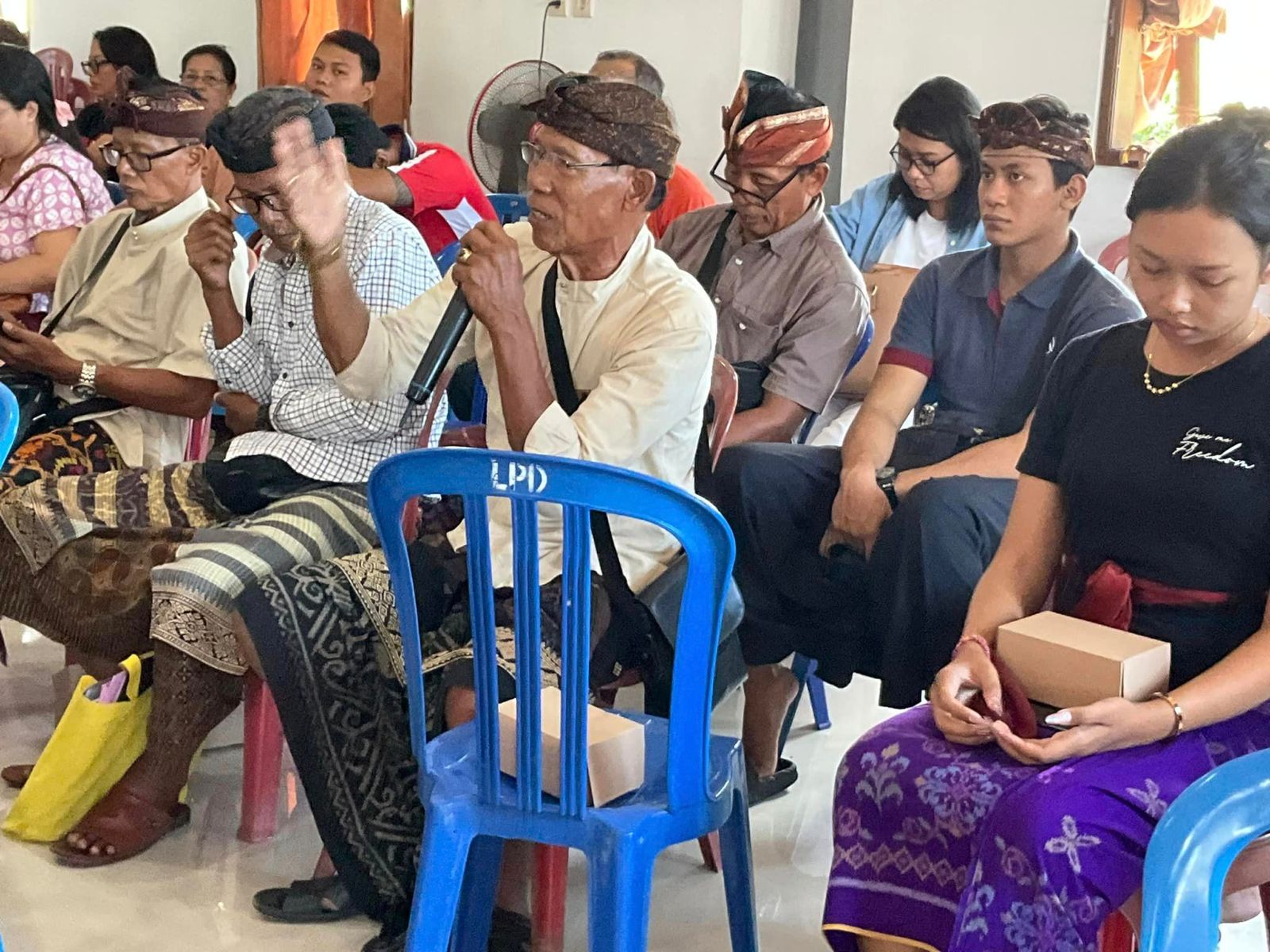
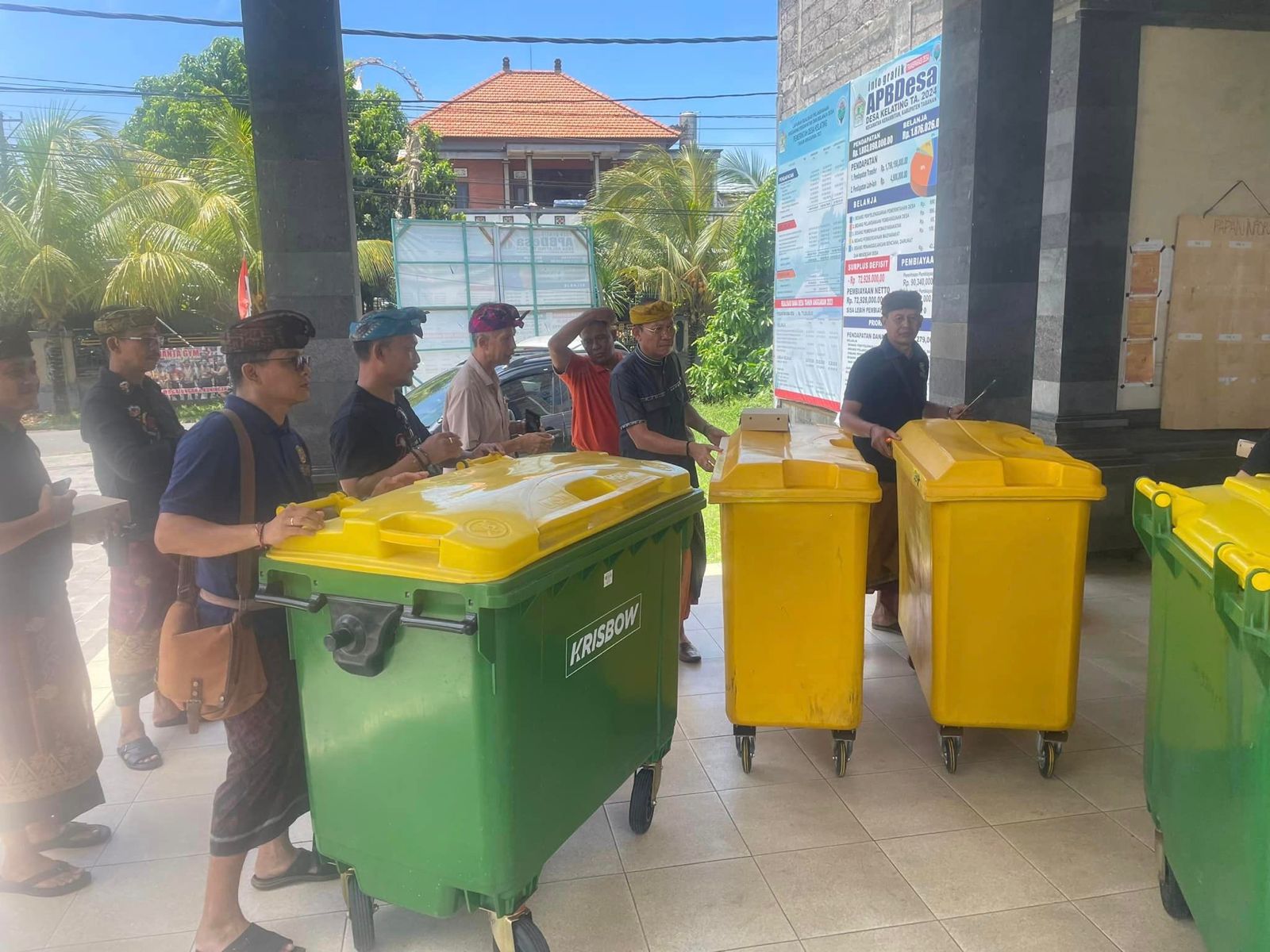

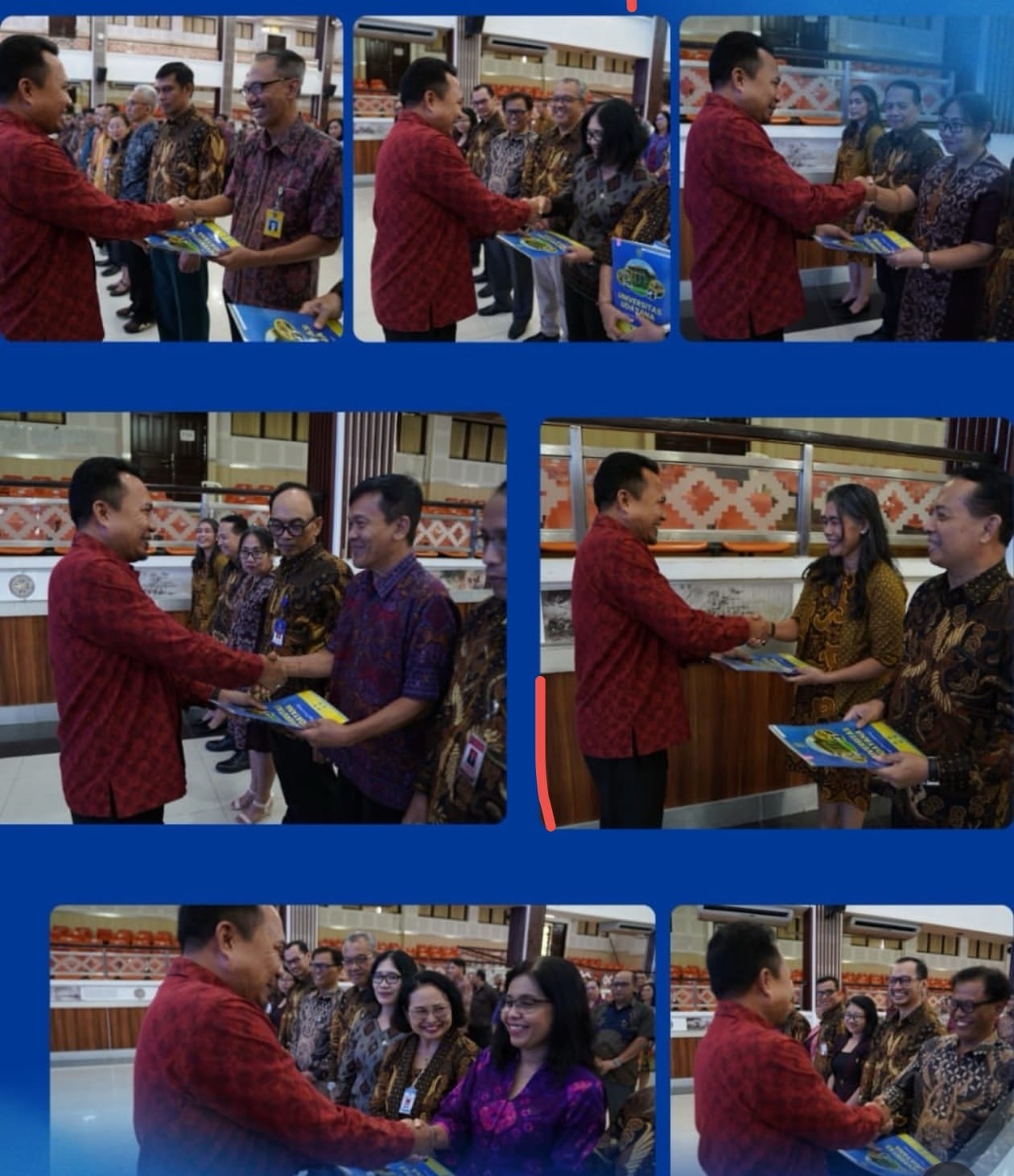
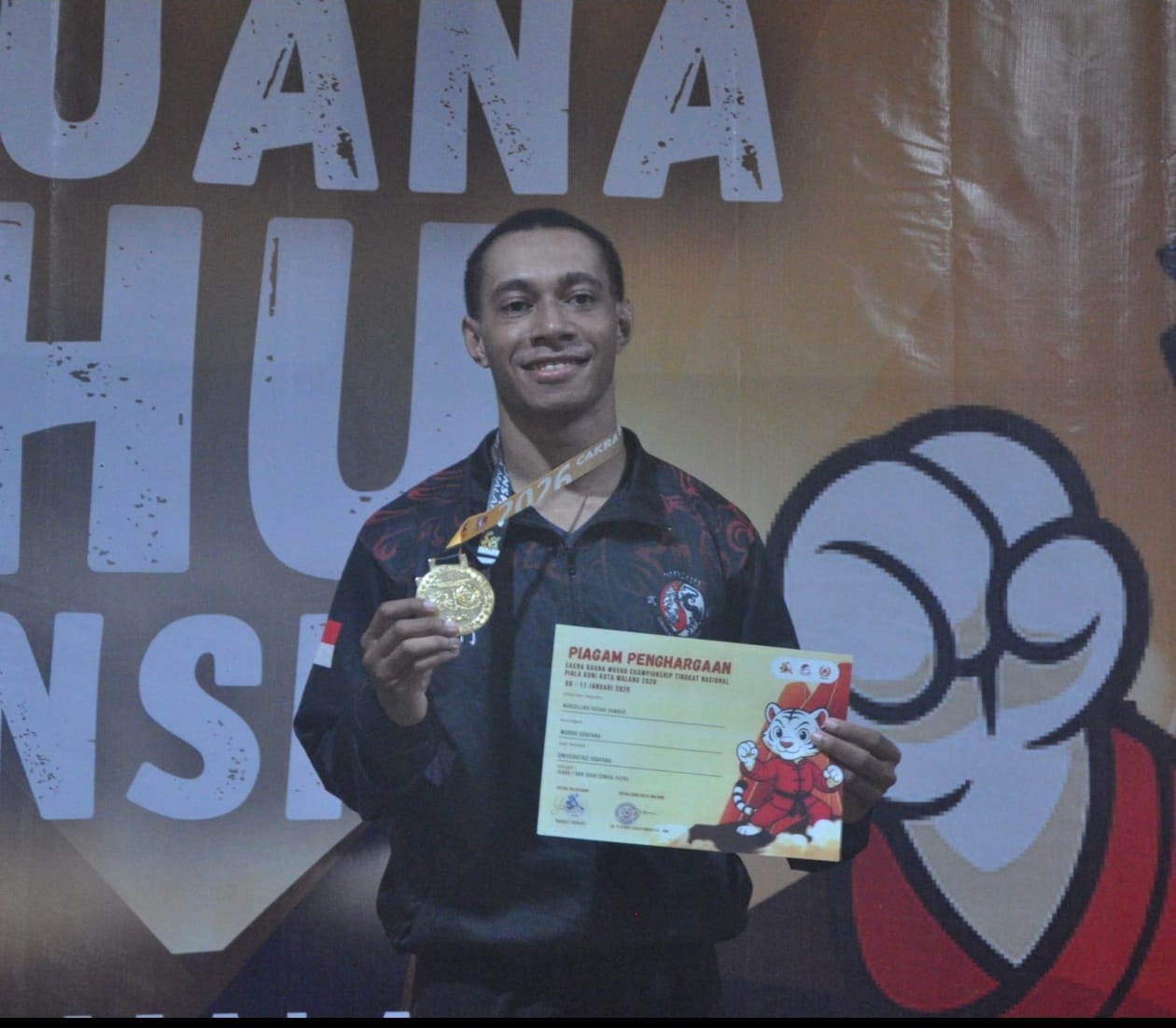
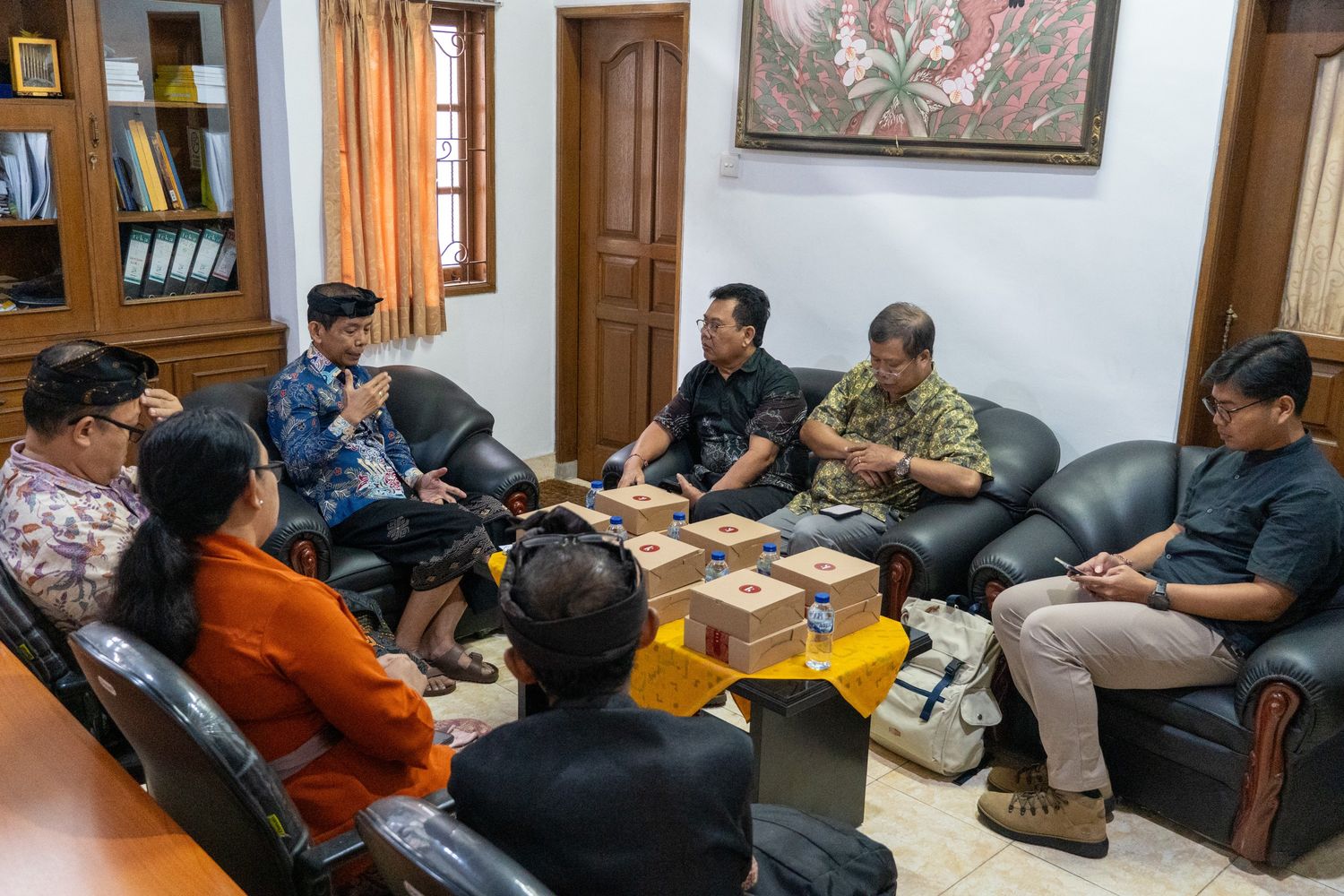
UDAYANA UNIVERSITY